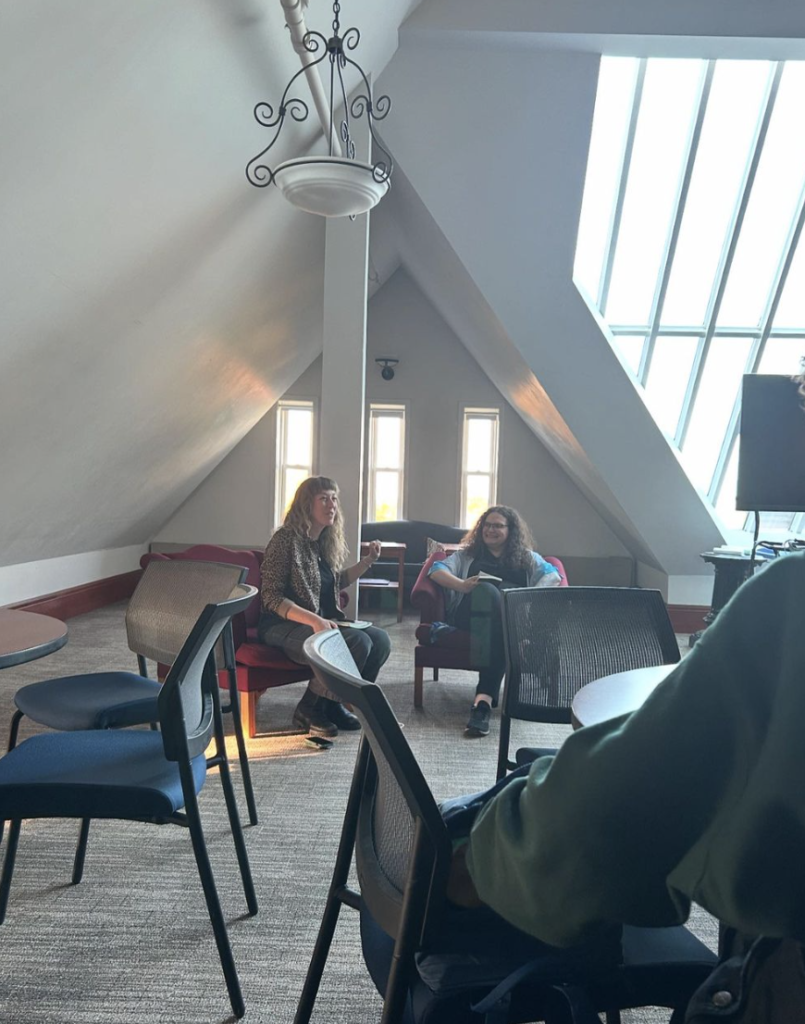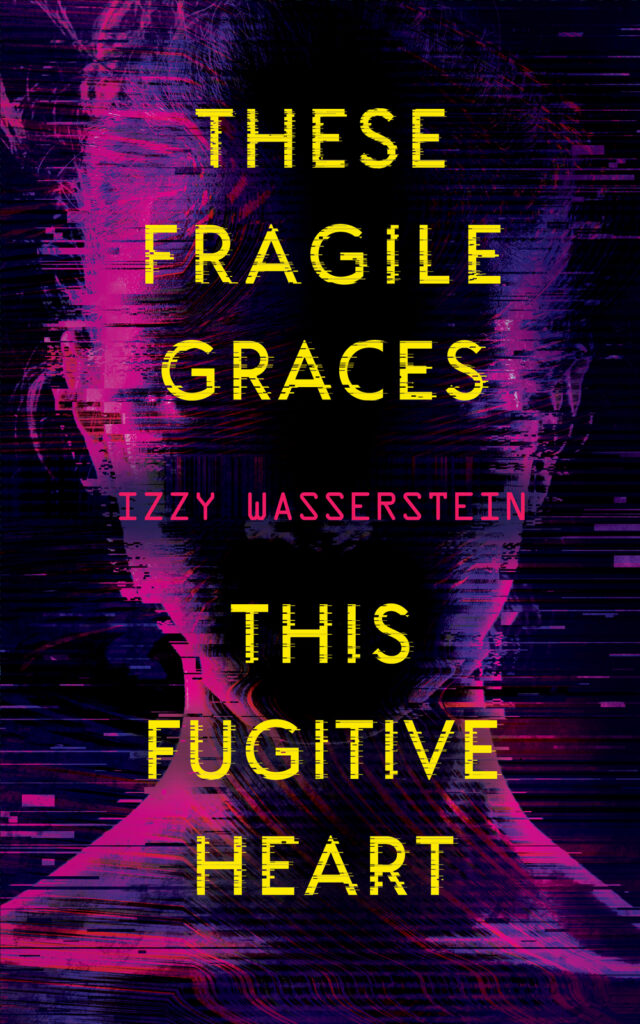Izzy Wasserstein Graces Our Literary Salon with Insights About Her Cyberpunk Novella
Contact
The Words: Macalester's English Student NewsletterSenior Newsletter Editors:
Birdie Keller '25
Callisto Martinez '26
Jizelle Villegas '26
Associate Newsletter Editors:
Ahlaam Abdulwali '25
Sarah Tachau '27
By Callisto Martinez ’26

Wasserstein’s novella
Izzy Wasserstein, author of These Fragile Graces, This Fugitive Heart (2024), blasted off into a discussion of her new novella after our space-themed Coffee House on Wednesday, October 9th. Professor Emma Törz introduced Wasserstein and asked her to begin with a reading of the first few pages of the novella that publishers marketed as a “queer, noir technothriller,” which Wasserstein also describes more colloquially as “cyberpunk.”
Before reading, Wasserstein gave content warnings for the whole book for content related to violence, drug use, and state-orchestrated harms. She later also gave a notice about the “spicy scene,” for anyone hoping to discuss the novella with family.
These Fragile Graces, This Fugitive Heart begins with an end; our protagonist Dora, a trans woman who remembers everything she discovers, learns that her ex-girlfriend Kay has been killed. This drives Dora to revisit Kay’s corpse at the commune Dora formerly belonged to, where Dora finds herself the best and only person to uncover the true circumstances of her former lover’s death.
After a gripping first few pages, Törz asked Wasserstein to talk about the genre of her novella, and how it diverges from and adheres to the genre’s conventions. Törz pointed out that Wasserstein drops the “I” pronoun in much of the first-person narration, stylistically aligning the work with other noir-style fiction pieces. Wasserstein shared that her murder mystery centers around what many sci-fi writers call the “singularity” — when technology evolves beyond the point where we can understand it. These Fragile Graces, This Fugitive Heart offers an example of how to contend with this in a world where the singularity is unevenly distributed, with the ultra-wealthy having access to technology beyond our comprehension; for Wasserstein, this represents one way that her novella portrays a futuristic scene of what’s already happening.

courtesy of Tachyon Publications
Atypical for many cyberpunk and technothriller works, Wasserstein’s novella is set in the midwest — specifically, Kansas City, Kansas. The liminal world, somewhere in between the Kansas City we know today and an entirely secondary or invented world, is set 20-30 years in the future. In this setting, Dora and others must contend with consequences of the climate crisis, such as scarcity of resources. Here, technology and access to it, complicates the murder mystery, rather than solving it for Dora.
Törz also asked Wasserstein more about herself as a writer and reader in general. This prompted Wasserstein to share that she values a strong, unique voice and loves tropes. However, Wasserstein operates by a rule that if a book can be reduced down to only its tropes, it’s not worth her reading it. This discussion of tropes and ways to play with them led to Törz and Wasserstein founding a new trope together: enemies to lovers to the LEGO store in the Mall of America. Törzs and Wasserstein both laughed at this despite the lukewarm reception from the audience to their new trope.
After laying out the basic premise of her book and some discussion about her writing process, Wasserstein offered advice to audience members with questions, sharing stories about her own process as she spoke.
Wasserstein loves a title that “gets its claws into you” and recommends that other writers try to steal a line from their story — or better yet, a great line that ended up getting cut from the final draft — to use as a title. She believes that a good title should “give you the vibes” of the work. Wasserstein shared that her long titles have resulted in changes to the table of contents of an anthology because the title of her short story “Seven Plans of the League Of Villainous Empowerment to Break Atomic Patriot’s Hold on Star City” took up multiple lines of page space.
An author of both poetry and fiction, Wasserstein recommends that writers looking to improve their craft push their limits and explore worlds and genres they haven’t uncovered in their writing.